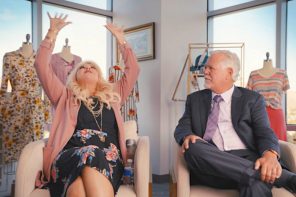Editor’s note: Joanna Brooks is on the board of directors of Mormon Stories, the nonprofit organizing the Circling the Wagons conference discussed in the following post.
Gay Mormons, their families, and allies will gather this weekend for a historic conference that breaks new ground for LGBT issues in LDS communities. The Circling the Wagons conference in Washington, D.C., will bring together long-time gay Mormon activists as well as high-profile gay Mormons like Mitch Mayne, who made headlines last year after having been called to a leadership position in a San Francisco LDS congregation.
They’ll gather as local Mormon conservative activists in Maryland also organize this weekend—acting individually and without involvement from LDS Church headquarters—gathering signatures in support of a ballot initiative to overturn a recently-passed marriage equality law.
But for this group of pioneering LGBT Mormons a key focus rather than marriage is on honoring the diversity of approaches to being a gay Mormon and on claiming LGBT affirming spaces within this deeply-held faith.
Says conference organizing committee member Randall Thacker, “I run into more and more gay Mormons who would like to go to church. They hear that there are affirming LDS bishops out there. But they are afraid.”
What makes for an affirming bishop in an LDS congregation?
Says Thacker, “We know that many bishops tell LGBT members, ‘I am not a gatekeeper for the Lord. My job is to bring people to Christ, and I want you here.’”
More and more reports are circulating in gay Mormon communities of LDS bishops standing up for gay young people in their congregations.
“Recently,” says Thacker, “a young Mormon man told his sister he was gay. Her husband is a bishop, and the bishop told the young man, ‘If anyone gives you hell, send them to me.’”
When another young man came out to his ward in Oklahoma, the bishop told the congregation and affirmed him, saying that the young man was welcome and that no one should treat him differently. Two other congregation members followed the bishop in turn.
The emphasis on claiming fellowship in LDS wards also represents a shift in the way gay Mormons are thinking about their identities. There have always been gay Mormons, of course. But in decades past, being a gay Mormon meant either remaining closeted and continuing to attend church, or being out and discontinuing fellowship and affiliation.
It’s not easy to be a gay Mormon, Thacker is quick to point out. “But there is going to be a brighter day. It’s gonna happen.”




